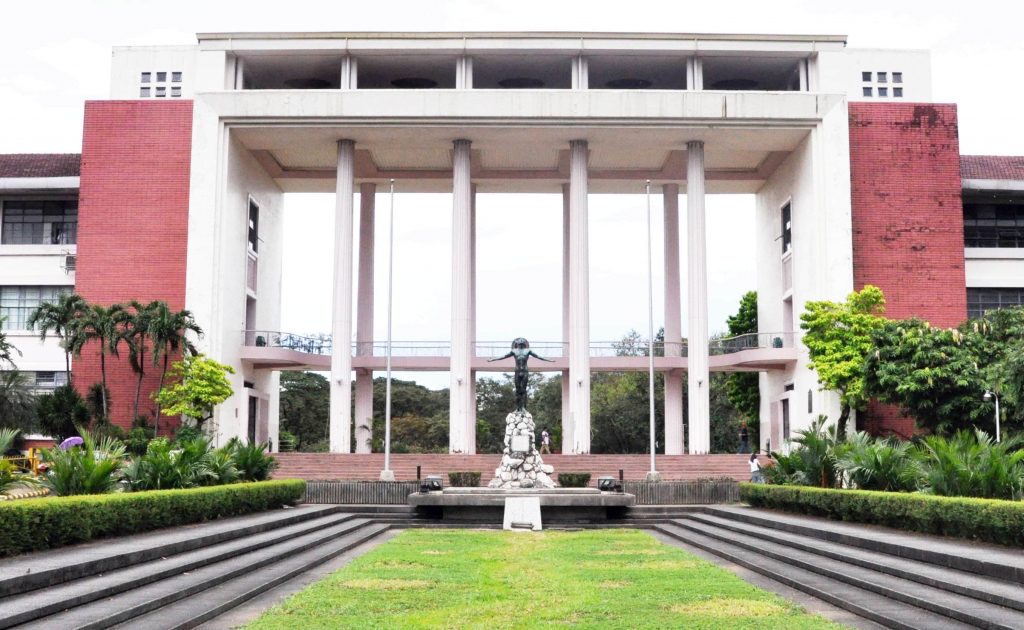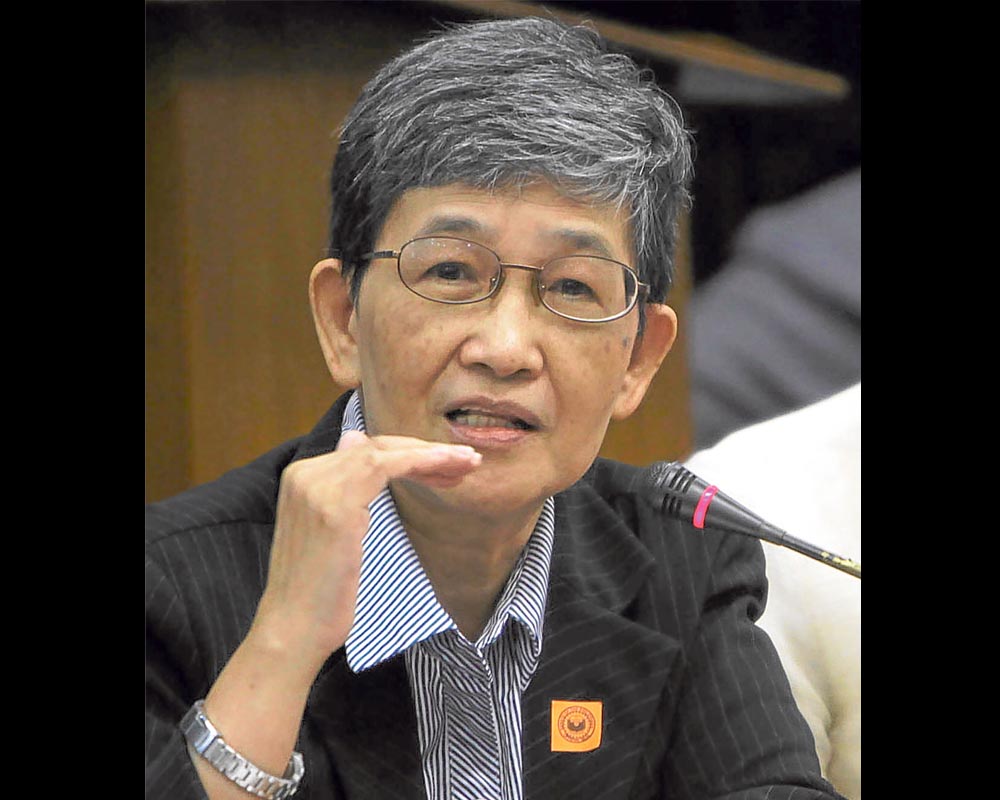For more than 40 years, we have lived by the meaningful credo of Kaisa Para Sa Kaunlaran: “The Philippines is our country. It is the land of our birth, the home of our people. Our blood may be Chinese but our roots grow deep in Philippine soil, our bonds are with the Filipino people. We are proud of the many cultures which have made us what we are. It is our hope, desire and aspiration, that with the rest of our people, we shall find our rightful place in the Philippine sun.”

With our active efforts in promoting social cohesion, in enhancing better understanding of the role of the Tsinoys in all aspects of Philippine life, in participating in development work that uplift our fellow Pinoy brothers, we firmly believe we have made great strides in hastening the integration of the Tsinoys. Our parents and grandparents, in fact, lament that integration seems to have become too successful: The younger Chinese Filipinos are losing touch with their Tsinoy roots.
Indeed, we thought we had made strides in countering racism.
Recent developments, however, have made us ponder over the extent of our integration efforts. A friend and co-worker in the pioneering work on integration, who is a fellow graduate of the University of the Philippines, emailed me a piece she wrote in reaction to the disturbing comments about Tsinoy Tiffany Uy’s exemplary and extraordinary achievement. Uy graduated summa cum laude from UP last June with a near-perfect general weighted average of 1.004, the highest in the university’s history since World War II. (See page 9.)
I believe that people who envy Uy and lambasted her for her achievement are few and isolated. She was bullied in social media from people who knew no better. But she also drew admiration and praises not just from Tsinoys but from Pinoys too.
“Who would not envy someone with beauty, brains and boyfriend too!” some of them quipped.
Looking back
I obtained my Bachelor of Arts degree from UP in 1971 and am proud of it. The university transformed my life. It upended some of my outlook and beliefs spawned by the Chinese schools where I studied and the Binondo environment where I grew up.
I was a working student all through four years of college. It was tough: I worked after classes six days a week and could study and do my papers only after 10 p.m. It was always almost midnight when I went to bed. Hence, as soon as I got on the 6 a.m. bus to UP, I fell asleep. The Diliman, Quezon City campus was the last stop back then.
I survived those challenging years and did well to maintain my private scholarship for four years. The required grade to keep the scholarship was 1.8 (equivalent to 85 percent in the American Association scholarship grant) every semester.
My political science classmates never treated me differently. We exchanged lecture notes, reviewed for exams together, helped each other with our term papers and take-home exams. They just couldn’t understand at first that I had to meticulously budget money for my daily commute, food and other school needs. I had very little extra money to help out when they passed the hat for teach-ins and rallies during my last two schoolyears, including for the First Quarter Storm and Diliman Commune that led to the imposition of martial law.
During the First Quarter Storm from January to March, 1970, students led anti-government demonstrations.
This was followed by the historic Diliman Commune, an uprising by students and faculty of UP Diliman, and transport workers on Feb. 1-9, 1971, to protest an oil price increase.
Growing up fast
When my son finished high school at Xavier School in Greenhills in 1995 I asked him to try his best to pass the U.P. entrance exams because I wanted him to have a change of environment from the exclusive Jesuit school. Most importantly, I couldn’t afford to send him to Ateneo de Manila University or De La Salle University.
During his second semester at UP, he thanked me for helping him decide on UP.
“I grew up fast in UP,” he said. To think that being my son, he had already been exposed to activism and development work before college, much more than any of his classmates ever had. His revelation on UP transforming him gave me much comfort. He, too, worked part-time in his last two years in college.
My son, however, lamented that the U.P. laboratory equipment was apparently worse than the Ateneo high school laboratory’s. One time, when he made it home at 2 a.m., he said it was because they had two laboratory syringes, one was accidentally broken and the other one left was “baluktot pa.” Hence, the experiments were prolonged.
Despite the inadequacy, he did well.
When he took his exams for the Ph.D. program at the University of Houston, Texas, he topped the exams, beating graduates from Singapore, the US, South Korea and elsewhere. That was due to the training he got in UP. They have learned to make do, improvise, be creative, adapt and adjust and, above all, solve problems.
I believe there are many parents like me who will choose an education at UP. over another university. It is much more grounded and well-rounded and, I’d like to think, produced better students. These students would learn tolerance, empathy, sympathy and being true to themselves. They would not begrudge a Tiffany Uy the honor and accolade she deserves for doing well just because she has a short surname.

Honor to UP
There are many top Tsinoy graduates in UP’s roster of outstanding alumni. Many of them have made names for themselves and brought great honor for their alma mater. Their race never mattered. They were top Filipino graduates, and not just UP but our country are proud to claim them, short surname and all.
Caroline Hau, now a professor at Kyoto University, finished summa cum laude with a degree in English (Imaginative Writing) in 1990 with a grade of 1.08, the highest ever received by someone graduating from the English Department.
In the same year, Felicidad “Bliss” Cua Lim, associate professor at New York University, graduated magna cum laude in Comparative Literature, missing the summa by a tiny fraction of a point.
They achieved that when English teachers were “terrors” who rain failing grades on students.
Alex Sy, businessman, Tsinoy community and civic leader, graduated cum laude in 1971 with two degrees simultaneously, Electrical Engineering and B.S. Chem! He is presently in the Board of the UP Engineering Foundation, the Aihu Foundation and president of the Anglo Chinese (Tiong Se) School Alumni Association.
The list goes on.
No one begrudged them the honors they got, least of all UP, and no one denigrated their achievements because of their short surnames. I believe the situation has not changed.
The University of Hawaii in Manoa disowned the speech of Antonio Meloto, founder of Gawad Kalinga, for being politically incorrect. I trust UP will also disown Prof. Gerardo Lanuza for being downright insensitive, narrowminded and bigoted.
I am sad that UP has someone like him in its roster.
The Center for Philippine Studies of the University of Hawaii disowned Meloto’s sexist remarks in his speech at the 40th anniversary of the institution. Meloto had said the Philippines’ greatest asset are its beautiful women who could entice investors to the country.
Without naming Uy, Lanuza in his blog said high grades did not reflect intelligence but a student’s ability to cull favors and get the best tools money can buy. Fellow UP professors criticized him for insulting their grading system.
When Wesley So became one of the youngest grandmasters in chess, when Tsinoy students won international math olympiads, when Tsinoy athletes clinched golds in sports, no one highlighted their ethnicity. We all rejoiced for the honor they brought our country.
We are comfortable in our Tsinoy identity. It gives us a chance to enjoy the best of two worlds and two cultures and achieve more because of our ethnic origins. We trust that despite recent setbacks we can now truly claim our rightful place in the Philippine sun.
In enlightened societies, racism is frowned upon. Here in our country, we must continue our efforts to make it so. There are still miles and miles to go as the recent racist setbacks have shown. — First published in Tulay Fortnightly, Chinese-Filipino Digest 28, no. 3 (July 7-20, 2015): 5.





